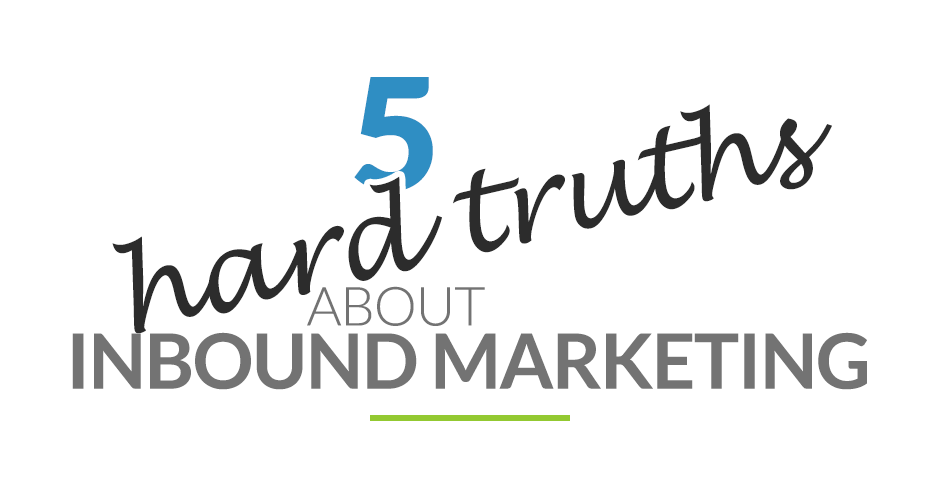 Inbound marketing sounds fairly simple. After all, millions of teenagers “create content” on Facebook and Instagram every moment of their waking hours. Some even have followings in the quadruple digits.
Inbound marketing sounds fairly simple. After all, millions of teenagers “create content” on Facebook and Instagram every moment of their waking hours. Some even have followings in the quadruple digits.
However, true inbound marketing is neither simple nor easy — at least, not when it’s done correctly. More than 90 percent of purchase decisions don’t start with a television commercial or billboard, but with an online search. While inbound marketing helps you appear in those search results, you have to let go of the toxic myths that often pervade inbound marketing conversations and instead embrace these five hard (but important) truths.
1. Consumers Respect Originality

You need the spark of originality if you want to succeed in inbound marketing. Have you ever read an article or blog post and thought, “I swear I’ve seen this before?” This is because much of the content that gets produced today comes from other sources. It might feature a slightly different arrangement and altered phrasing, but it doesn’t say anything new or fresh.
It’s true that you can’t always relate brand new information in your content; however, you can set it apart by presenting it in a new and compelling way. What unique insight or perspective can you bring to the table? How can you relate information so that it reaches a new audience or makes sense of a previously confusing concept?
2. You Might Not Get It Right
During his speech at New York’s Advertising Week in October 2015, industry-leading marketer Seth Godin said, “I think it’s fair to say that I have failed more than most people…the person who fails the most wins.” He’s referring to the fact that you can’t enjoy tremendous success without first experiencing failure. We even fail at MINDSCAPE!
Failure probably scares you. It might remind you of the big red F you received on your history paper in the sixth grade — the one you were afraid to show your parents. People are punished for failure during their formative years, but many times, the business world rewards it in unexpected ways.
The timing will never be perfect. Start your inbound marketing campaign with the knowledge that you might make a misstep or two, but that you’ll recover and learn from the error. Otherwise, you’ll never get your feet off the ground.
3. One Person Can’t Handle It

Inbound marketing requires a team approach.
You’re used to delegating tasks: Write this report, call this customer back, answer these emails. However, inbound marketing isn’t a duty or responsibility that you can type at the top of a job description or issue as an assignment.
Inbound marketing requires a team approach, according to Hubspot, because it encompasses a wide variety of skill sets and commitments. An SEO expert doesn’t necessarily have the experience or expertise to write content or engage with a social media audience.
4. It’s Essential for B2B as Well as B2C
When you sell to other businesses, you might think that inbound marketing will only waste time and money. In reality, though, inbound is just as effective in the B2B space — if not more so.
For instance, take social media marketing. Of the millions of people who log on to Twitter and Facebook, many of them own or manage businesses. They’re not just in the market for a new television or electric toothbrush; they also buy supplies, materials, and technologies for their companies.
So, if you think you’re off the inbound hook just because you’re involved in a B2B enterprise, think again.
5. You Won’t Get Rich Overnight
Inbound marketing isn’t a fad, a scheme, or a magic bullet. It requires investments of time, money, and energy, and it’s designed for the long haul. Don’t fall into the trap of assuming that an inbound marketing campaign will create drastic results in a 24-hour period.
Understanding the truths and facts surrounding inbound marketing will help you prepare more effectively for your own campaign. If you’re ready to shake off the myths and get down to business, request a consultation with our team.




